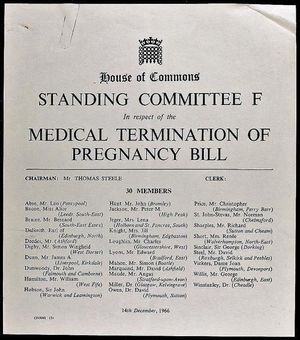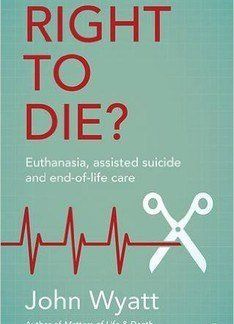YOU and the Human Fertilisation and Embryology Bill
In May 2007 the Government published a draft bill called the Human Tissue and Embryos Bill. On 8 November, it had its first reading in the House of Lords under its new title of the Human Fertilisation and Embryology [HFE] Bill (2008). It is set to dismantle the fundamentals of human dignity, good medicine, family structure and even human life itself.
This bill is primarily an overhaul of the HFE Act (1990) – a fruit of the Warnock Report (1984). This was bad enough, with legalisation on assisted reproductive technologies, destructive embryo experimentation, surrogacy, and so on. But the 2008 bill makes the 1990 Act look positively restrictive.
Hybrid embryos and saviour siblings
The Upper House debated this new bill from November to February and several peers bravely proposed amendments to ban or limit some of its worst proposals. Sadly, every one of these pro-life revisions was heavily defeated.
The new bill will legalise some dreadful practices. For example, it will sanction the creation of inter-species hybrid embryos – grown from animal ova whose cell nuclei have been replaced by human genetic material. The creation of these ‘human admixed embryos’ crosses an immense ethical boundary and should never be allowed.
The bill also permits the production of ‘saviour siblings’ for ‘serious’ rather than the currently allowed ‘life-threatening’ conditions. Any embryos that do not match the precise genetic requirements will be destroyed. This is yet another example of a bioethical downgrade – once a procedure is permitted for a few ‘hard’ cases, it soon becomes widely available.
Similarly, the bill endorses sex selection of embryos for social, rather than medical, reasons. For example, a couple with three daughters might want a son, so any subsequent female embryos (produced by IVF and selected by ‘pre-implantation genetic diagnosis’) would be destroyed in the interests of ‘family balancing’.
One of the bill’s more publicised effects is to delete ‘the need for a father’ when considering the ‘welfare of the child’ prior to IVF treatment. Yet, despite growing evidence that a child does best when raised by a mother and a father, an attempt to reinstate this requirement was roundly defeated.
Another key amendment sought to ban abortion of the disabled between 24 and 40 weeks gestation. This provision has been used to abort the unborn with such minor disabilities as cleft palate and club foot. It too was defeated.
Abortion
The Government carefully drafted the bill to avoid the issue of abortion. However, since the HFE Act (1990) modified the Abortion Act (1967), amendments to abortion law will inevitably be introduced during its passage through the Commons.
As if 200,000 abortions each year in England and Wales are not enough, some MPs are planning to increase access to abortion, up to say 13 weeks, with no questions asked. They also want to scrap the requirement for two doctors to approve an abortion and extend the Act to Northern Ireland. Others want to repeal the Act’s conscience clause, thereby pressurising pro-life doctors and nurses.
On the other hand, pro-life MPs are planning to reduce the upper limit of abortion to 20 (or perhaps even 18) weeks – anything that lessens the slaughter. Others want a requirement for proper informed consent, including an explanation of the physical and mental risks of abortion and a cooling-off period to allow a woman to change her mind. And there will probably be an amendment to ban eugenic abortions, that is, for disability.
High stakes
The stakes are high. If the bill succeeds in its present form, human life itself could be jeopardised. The bill is expected to enter the House of Commons after Easter, probably in early April. Since MPs tend to be more responsive to public opinion than the Lords, especially that of their constituents, now is the time to act. Christians should:
1. Pray about these issues, especially for MPs engaged in the debates and votes.
2. Educate ourselves, our families and our churches about this bill.
3. Be salt and light – write to, or meet with, their MPs. Be brief, polite, firm but winsome. If you are unsure what to say, consult the websites of the Christian Institute (www.christian.org.uk), the Christian Medical Fellowship (www.cmf.org.uk), and the Lawyers’ Christian Fellowship (www.lawcf.org).
4. Care for the disabled, the infertile, the senile, the vulnerable.
5. Join and give to organisations fighting this bill.
If evangelical Christians will not speak up on these great issues, who will? We were all silent about the 1967 Act. Some of us spoke up against the 1990 Act. Now we have another great opportunity to defend and protect human life. May God, the Creator and Sustainer of life, assist us all.
Dr John R. Ling
















